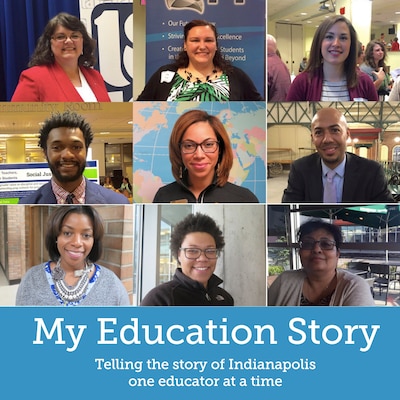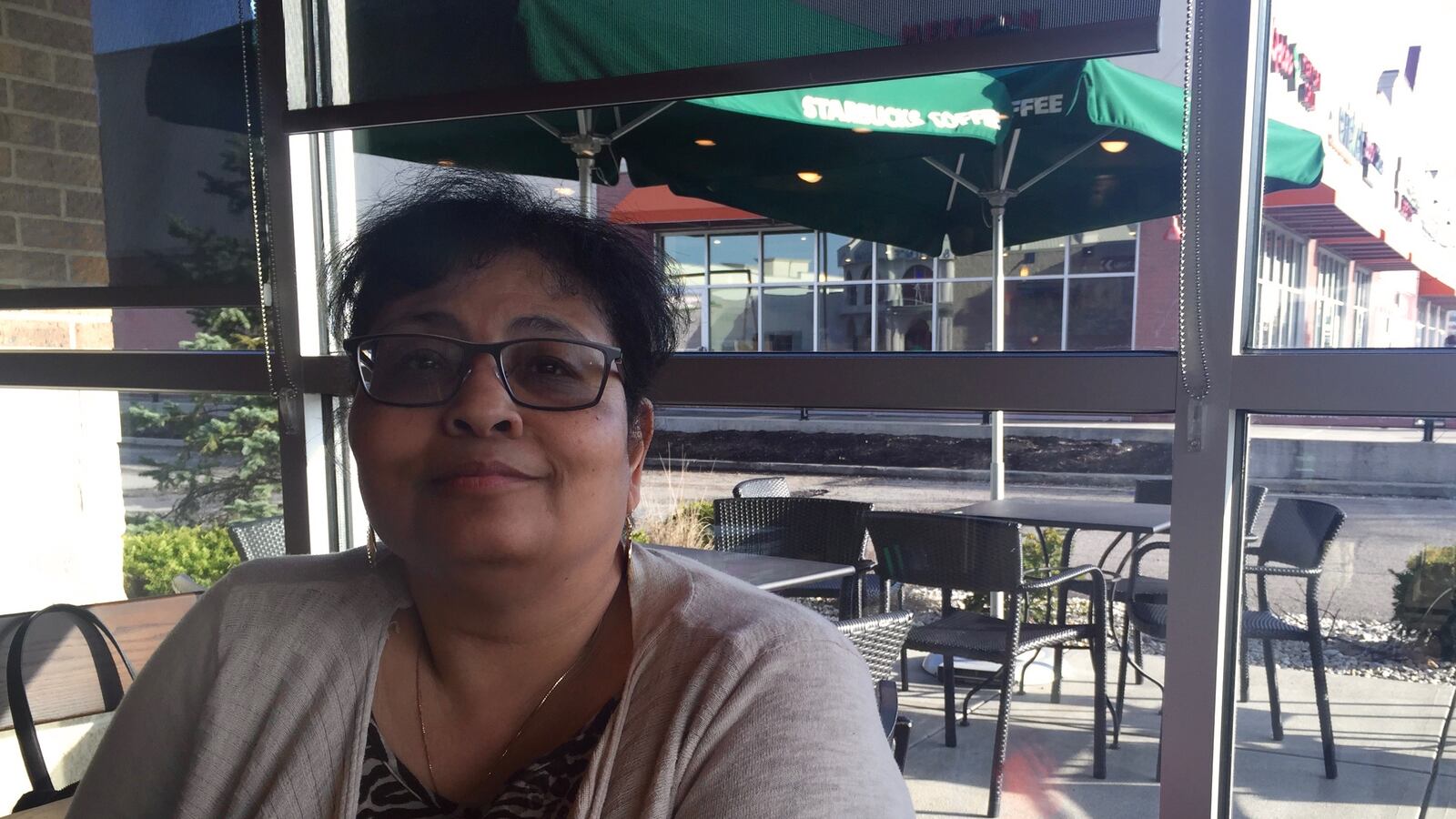
Chalkbeat journalists ask the people we come across in our work to tell us about their education stories and how learning shaped who they are today. Learn more about this series, and read other installments, here.
Teruko Knight-Gavia is an administrative assistant at Indiana Math and Science Academy West (IMSA). Knight-Gavia taught math in Indianapolis Public Schools’ John Marshall Middle School for about 10 years. She also spent time teaching at Sidener Gifted Academy and IMSA-West. Chalkbeat met Knight-Gavia near IMSA. She grew up going to school in IPS and Lawrence Township when her father was based at Ft. Harrison.
My mother is Japanese and my father is African-American, so our first language was Japanese.
They met in Japan during the Korean conflict. My father was based out of Okinawa and that’s how they met. He’s originally from Mississippi. The last place his father migrated to was Indianapolis, and then he died, so the family just stayed here.
I had an excellent kindergarten teacher; I was the only brown student in the entire class, but I didn’t know. I know it now when I look at the pictures, but she didn’t treat me any differently than any other child. I’m sure there probably was a language issue because I remember my sister and I said to each other that we were going to learn to speak English as well as anybody else. That was our pact we made with ourselves.
The teachers just took it that we weren’t as bright. They treated us as if we were less knowledgeable or we weren’t as smart as other people. And so my parents, because of that, they made us work harder. Education is the responsibility of the parents, and if the parents put the focus on education, then the children will put focus on their education.
I feel blessed to have had my parents when it comes to education. I think their personal backgrounds — my dad feeling like that “separate but equal” thing did not work for him … the fact that my mother, back then Japan was a third-world country and now it’s not a third world country, and that women, depending on your status in society, could either be denied an education or have limited education based on the patriarchal system there — They were so insistent that all of us go to college. My father used to say “especially girls” need to have an education.
When we lived in Chicago, my oldest daughter, I took her to the projects. I told her if it wasn’t for your grandma and grandfather, this is probably where we would’ve been. We could’ve ended up in a place like this. They were so insistent about education that even though I had her young, and I married young, education still was in the back of my brain. I was going to get it no matter what. It was just something I had to accomplish.
I thanked my parents before they died, but I just wanted my children to understand that if it wasn’t for them insisting, and if it wasn’t for the fact that they had gone through the lack of education — wanting education but weren’t able to get it — that as a family, we wouldn’t be where we are.
When [my dad] was growing up, he didn’t have books. He always had to go to the library to borrow books if he wanted to do any reading or schoolwork. So books were really important to our family, and so we were taught that books were sacred and they should never be left on the floor. The Bible was the most special book, but all books were special.
When I was younger we had books in Japanese and English because my father was a big fan of making sure that we read. He would go to Chicago and purchase books and magazines for (my mother) in Japanese so that she would be able to read. It was just a big thing in our family because education was really important to both of them.
That was our first form of education.
For my mother everything was turned into an education because she wanted us to be very American. So we couldn’t watch TV without her having comments about “Well, see how they do this,” and “See how Americans do this and Americans do that.” You know, that kind of thing.
Everything was an educational lesson according to her. The only time she said you rest is when you were sleep.


